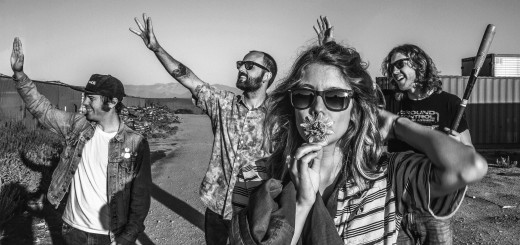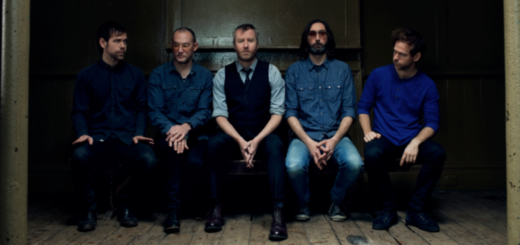The Third Day of Crossmas: Hip Hop, Keep Changing
In this seasonal series, the good people of Crossfader detail what they want pop culture to get them for Crossmas this year. This time around, it’s…
For Hip Hop to Keep Changing
2016 rocked a lot of people’s shit, and hip hop heads were no exception. No matter what camp you come from, no matter the tribe you think you represent, chances are you were left scratching your head at least a few times this year over the new directions this genre has spun off into in the past twelve months. It hit different fans at different times, depending on what you were and weren’t expecting, but let’s briefly recap. Kanye’s album dropped suddenly, and depending on how you interpreted it, it was either a groundbreaking diamond-in-the-rough or his absolute worst, but either way, the release and absolute uproar around TLOP was a moment that’s going to be remembered. Then Beyonce put out LEMONADE, a record that not only was a radical celebration of black femininity, but which also inarguably brought one of hip hop’s emperor’s down a peg. Gucci Mane got out of prison and seemed healthier and happier than ever, only to put out a pretty average tape. Young Thug wore a goddamn dress on his album cover. Then the controversial XXL Freshman class was announced, riddled with rappers that had old school heads covering their noses and turning away, most notably Lil Yachty. Sweet, sweet Lil Yachty. It’s easy to hate on the borderline meme-y Atlanta rapper, and he’s become the scapegoat to point to as everything wrong with modern rap. Yet, if you’re anything like me, Lil Yachty proved to be a bright spot in an otherwise bleak year; in fact, the State of Hip Hop today seems better now than ever. Really, my only Crossmas wish for 2016 would be for the genre to keep changing this dramatically next year, because, let’s face it, it’s changed in some great, profound ways.
Hypermasculinity seems to be dying off in rap
One of the biggest struggles in being a fan of rap is how aggressively masculine it can be at times. (Although, if you think that’s all there’s ever been to hip hop, I instruct you to get schooled by KRS-One.) That’s seemed to change this year in some crucial ways. First, let’s consider some of the biggest rappers to really blow up this year: Lil Yachty, Lil Uzi Vert, and Anderson .Paak. (Yeah, I know .Paak has been in the game for years, but don’t pretend he didn’t blow up this year.) Now, these rappers fall on a pretty wide spectrum, but what do they all have in common? They’re sensitive, like outwardly, directly sensitive. Whether it’s .Paak rap-singing about how much he loves his wife or the cartoonish style of Yachty, this has been a year of rappers who wear their hearts on their sleeves. This is great because it reinvents what it means to keep it real in hip hop. The posturing and posing that’s come with trying to act hard at all times has gotten stupid, the fans were getting tired of it, and it seems like MCs have been as well. Because that’s the great thing a lot of Lil Yachty detractors don’t get; whether you like him or not, his music is a reflection of who he very genuinely is. And who he is seems to be a guy who isn’t as concerned with coming across as aggressive, dominant, and virile as his counterparts from ten or 15 years ago.
But maybe you can’t get past the fact that the young ones in rap can’t “really rap” like they used to. If that’s the case, then look at somebody like Chance the Rapper, a guy whose rise to mega-fame this year seems to have been bolstered by his eternally optimistic charisma, alongside the fact that that he can really, really rhyme when he wants to. Yet again, he also can be charming, vulnerable, a proud father, and distinctly not a gangster.
This toning down of masculinity seems like it’s going to have a positive ripple effect on the genre as a whole. I can point to no better example than Noname’s success this year, admittedly somewhat on the coattails of Chance, but ultimately on her own terms. What makes TELEFONE a special record is that it’s a distinctly feminine rap record, not a record with a female MC embracing her inner-male swagger. No disrespect to Missy Elliot, Lil Kim, or Nicki Minaj, but up until this year, it seems, for a female MC to break in, she had to prove she could roll with the boys. Does this mean that mean that hip hop is becoming more feminist? Not really, but for a genre that used to regularly refer to killing bitches because they can’t be trusted, anything is progress. Remember when Kanye wearing a pink polo was considered radical? Yeah, that shit is long gone, for the better. Speaking of Kanye…
Get ready for dad-rap
Like I said, love or hate THE LIFE OF PABLO, it did present one consistent, overlooked theme that I think is truly revolutionary. The whole album deals with issues of faith, but really more with issues of faithfulness, and more specifically, remaining a faithful family man and father when one is also a mega-star rapper. In one sense, the whole album is pretty specific to Kanye, but in another sense, it’s a complete transformation in terms of what a great hip hop record can be. Great rap almost always centers around the struggle to be recognized for your greatness so that you can become ludicrously wealthy and triumph above the rest. But Kanye’s kind of already done that, several times over, in fact. There’s no one left for him to conquer; he is probably the largest figure in popular music, nevermind rap. Look past the drama about him editing the album, the bizarre way he released it, and his own apparent mental breakdown over the whole situation, and you still have a narratively fascinating rap record. Kanye didn’t have anyone to defeat on this album but himself, and the goals he was aspiring to were being a good father and a good husband, goals that you don’t really hear about in rap.
It’s a good thing we’re finally hearing this kind of rap, and it’s about time, because let’s face it, hip hop is finally getting old. It’s always been a young man’s game, but the genre itself? Shit, it’s going on 40, if we’re being generous. Luckily, a lot of the old guard are still kicking around to pass down bars, but it doesn’t exactly work for them to rhyme about hustling and trying to get hoes, not when you know they’ve been married for 15 years. But hopefully, Kanye opened up a new doorway; he showed the game a new struggle to strive for, being a good dad. And that’s not a bad thing, having rappers be able to come out and rap about what’s going on in their world; in other words, it’s a new avenue for them to keep it real. THE LIFE OF PABLO didn’t have to be perfect for it to have this impact, and hopefully over the next few years, we’ll see more older rappers opening up about the new struggles they’re genuinely facing. It’ll only keep the music more interesting, and it’ll only help it to continue to evolve and grow.
Hip hop is getting more mainstream than ever, for the better
Does anyone realize how crazy it is that President Obama got something like a dozen rappers to formally visit the White House this year for the My Brother’s Keeper project? A genre of music that under Bill Clinton’s administration was seen as being made by “superpredators” officially made its way into the highest house in the land. It doesn’t matter if you dislike Obama, if you think he hasn’t done enough for racial justice in this country, or if you think hip hop should always be opposed to the established order, this year marked a huge and necessary moment for the legitimacy of rap in a white, mainstream context. It’s hard to say where it started. Maybe it was NPR raving about TO PIMP A BUTTERFLY last year, maybe it was 8 MILE putting a white face and a larger narrative to rap that opened people up to it way back when, but it seems like finally, in 2016, white people can accept rap as a form of art. Or, at the very least, they’re finally aware of how racist it sounds when they try to explain why they don’t like it.
Because, admittedly, lately, white America has been having to come to terms with how racist it’s sounded for decades, particularly in the era of racial colorblindness and mass incarceration. The truth is, we need hip hop now more than ever to break through racism and battle ignorance. Hip hop has always been good for shaking up the status quo, and we have found ourselves in an era where the status quo very much needs to be shaken up. And the truth is, this can’t just happen from a sermon on the mount from King Kendrick; while there’s more great conscious hip hop being made than ever, not everyone is going to listen to it. Serious, self-effacing reflections on race can’t be the only type of rap we can expect to blow up, the genre as a whole needs to keep expanding in all directions so that it nets as wide an audience as possible, and that’s exactly what it did this year.
We need hip hop to change because America’s image of black identity needs to change. Hip hop has been forcing America to reconcile with its pre-conceived notions of blackness since Grandmaster Flash, to N.W.A, to 2Pac, but that circle needs to keep expanding. We need to accept the goofy, skinny guys with cherry red dreads. We need the dads rapping about being fathers. We need women rapping about their families and summer afternoons. This rich, vibrant culture that’s so dense with literary wordplay that sometimes it makes my head spin just needs to keep expanding and being a bigger part of mainstream American culture, so ever-present that every alt-right leaning white dude can’t tune it out. So in short, hip hop, keep doing what you’re doing. You were the one part of 2016 I genuinely enjoyed following, and my Crossmas wish is only that you stay this vital and this interesting in 2017.
Editor’s Note: We originally included some minor discussion of Kodak Black as a positive agent of change in hip hop, but upon learning that he is now facing charges in South Carolina for sexual assault, we have removed his name from the piece.



